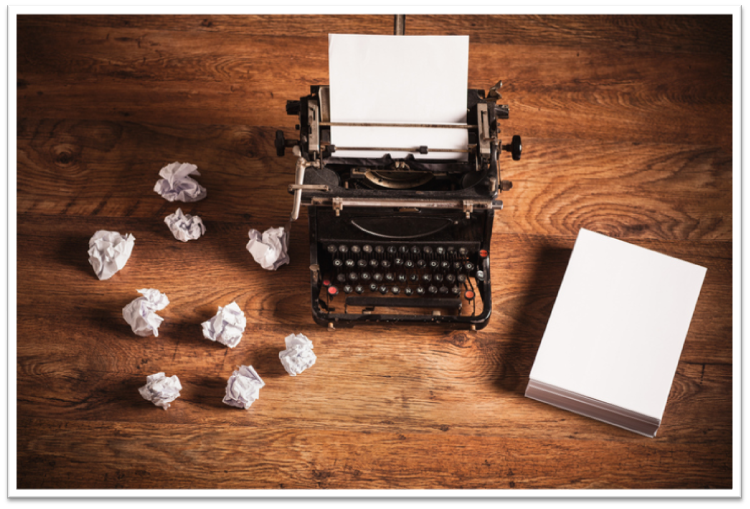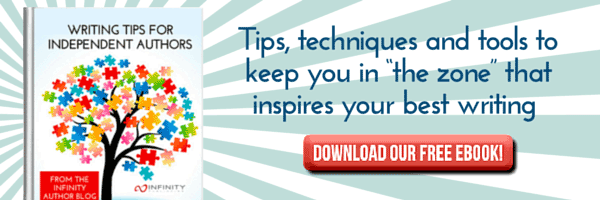Writers block shows up for all sorts of reasons and when it does it can seem as if it will never pass. What's that saying- "this too shall pass"? Try our latest tips and banish block now. 
How to banish writer's block
1. Write at unusual times, in different settings. Start by asking yourself if you need a change of scenery and time of day to write. You might be too in your "comfort zone" and not enough in your writer's zone at this point if the ideas aren't flowing. Think about it, if you have become accustomed to seeing the same faces at the same time at the same coffee shop, how can you create new characters for your story? You need new inspiration. Not only are new settings important, but so are times of day. Research shows we percieve information uniquely at different times of day due to how our neurotransmitters are influenced by outside, external information.
2. Neuro-enhancing music... Speaking of neurotransmitters, are you keeping them in good shape? Help out your mind with brain-resetting music. Mind Amend by Jason Lewis a great series that was developed to help your brain with memory, cognition, relaxtion and clarity. Many writers report after adding some type of neuro-enhancing music that their writer's block diminished.
3. As famed author Charles Bukowski once said, "writing about a writer's block is better than not writing at all." So have you tried it? After getting in the routine of listening to neuro-enhancing music, consider doing some free writing about your writer's block. Does it follow a pattern? Does it take place at certain times? Is it when you're under stress? Do you have too many projects going at once? Journal what it's all about and get some introspection before you're too hard on yourself.
4. With a new setting, mind-enhancing music and journaling, it could be time to see how your techniques are helping. If you've had a fear of the finished product or a sense of perfectionism, now is the essential time to identify that before moving into your creative space. If Virginia Woolf and James Joyce can harness stream of consciousnessness writing, so can you! Basically you're letting uninhibited thought hit the paper. No stopping for grammar, no stopping to edit, keep on going.
- Choose your person, place or thing to write about for the day.
- It may seem unconventional to suggest paper and pen, but if you're not already journaling as suggested above, this may be an important mode for you. Many people however have great success using their computer for stream of consciousness as well.
- Now, keep going. This is most important- keep going as long as possible.
- Save your work, don't judge it and re-read.
The most important thing is to identify mental clutter and start by removing writer's block there.
Have these tools worked for you? Tell others about it in our comments here.
Keep the Faith and May the Force be with You!




